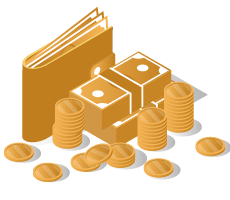How to Spot Electricity Bill Scams in Australia
Electricity bill scams are becoming more common across Australia, with scammers posing as energy providers in an attempt to steal money or personal information. These scams can come in the form of phone calls, emails, text messages, or even door-to-door visits. While scam detection tools are improving, the most effective way to protect yourself is by knowing what to look out for.
What Is an Electricity Bill Scam?
An electricity bill scam occurs when someone impersonates a legitimate energy provider and claims you have an unpaid electricity or gas bill. Scammers may demand immediate payment, often using high-pressure tactics or offering fake discounts through third-party services. Their goal is to either extract money or collect enough personal information to commit fraud.

Signs of an Electricity Bill Scam
Scammers are becoming more sophisticated, but there are still some clear signs that something isn't right.
- They threaten immediate disconnection: If someone tells you your electricity will be cut off within hours unless you pay, it’s likely a scam. Licensed retailers in Australia are required to give written notice and follow formal procedures before disconnecting your power.
- They request unusual payment methods: Be cautious if you’re asked to pay using money transfers, prepaid debit cards, or cryptocurrency. Reputable energy retailers only use secure and traceable payment methods like BPAY, direct debit, or credit card.
- They provide vague or incorrect information: Scammers may not know your actual energy usage or account details. If the caller can't confirm basic information or seems uncertain about your plan, hang up and contact your provider directly.
How to Protect Yourself
- Don’t share personal details: Avoid giving out your account number, phone number, address, or other personal details unless you are absolutely sure you’re speaking with your energy provider. If you're unsure, stop the conversation and call the provider using the contact information from their official website.
- Verify the message independently: Don’t rely on the phone number or email address used to contact you. Instead, visit your energy provider’s website and use the official contact details to confirm if the message is legitimate.
- Keep track of your energy bills: Understanding your billing cycle and keeping a record of recent payments will help you identify fake bills. If someone claims you owe money, you’ll be in a better position to confirm whether it’s true.
- Report the scam: Contact your energy retailer to report any suspicious messages or calls. You can also lodge a report with Scamwatch, run by the ACCC, to help protect other consumers.

Myths About Electricity Scams
- Being on the Do Not Call Register means you’re safe: Scammers don’t follow telemarketing rules and often target numbers at random, including those on the register.
- Scams are only about stealing money: Some scams are designed to collect personal information for identity theft, which can be just as damaging.
- A legitimate-looking website means a legitimate business: Scam websites are often designed to look professional. Always search for independent reviews or verify a business by checking their ABN or contacting them through trusted sources.
Compare Electricity Plans
Want to make sure you’re getting value for money? Use Selectra’s free comparison service to check electricity plans in your area. Simply enter your postcode to see available offers and providers.
Click below to find a better deal for your home!
